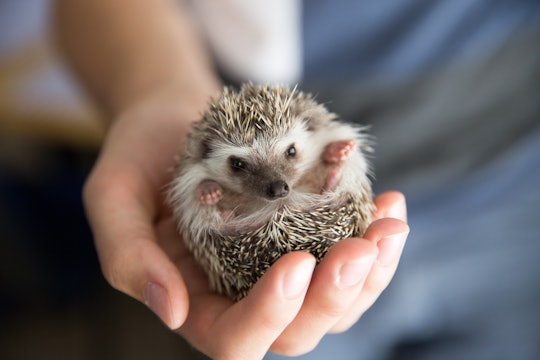Life

One person's nuisance raccoon is another person's trash panda. But if you try to bring your masked friend into your house in New York City, you'll be violating laws that prohibit wild animals from being housed as pets. And New York City is far from the only place with laws prohibiting the types of animals you can keep on your property. All 50 states have regulations on what animals can and cannot be kept as pets, and while these pets that are illegal to own vary widely from city to city, all of them can get you in a heap of trouble if they're discovered.
Most states have some form of exotic animal legislation that bars everyday people from owning things like elephants, giraffes, chimpanzees, and crocodiles. In states like Ohio, owning an exotic animal can saddle you with fines reaching up to 1 million dollars. While most of them seem like common sense — after all, most of us have no idea what to do with a grizzly bear or anaconda so we really shouldn't own the predators — others make you scratch your head. For instance, in New York City you cannot own a squirrel and other large rodents. As a city that made rats famous, not allowing citizens to own rodents as pets seems strange. It is also illegal to own a dolphin in New York City, which means that it's likely that at some point, someone thought that they could keep Flipper in their backyard pool.
How rude.
1
Anything Venomous
Lots of areas, including New York City, ban the ownership of any venomous animal, be it snake, spider, or komodo dragon. Personally, I don't see the interest in owning something that could sink venom into your body, potentially causing you to weaken to the point where you cannot fight back. Alas, there are apparently people who think this is a great idea.
Godspeed.
2
Multiple Dog Breeds
Cities across the United States have laws on the books banning what they deem as "dangerous dog breeds." Pit bulls get the most attention, but wolf hybrids, Akitas, Rottweilers, and Doberman Pinschers also make the cut.
As the former owner of a Rottweiler and Akita who have both crossed the rainbow bridge, and as the friend to many pitties, this makes me sad. I understand the reasoning, and I understand people's fears, but it's still disheartening. If only we could legislate guns the way cities legislate animal ownership.
3
Farm Animals In The City
Many cities, like New York, ban farm animals inside city limits. That means no goats, sheep, llamas, or livestock of any kind within city limits. Oddly enough, in New York you are allowed to own chickens, but not roosters. I believe that it is likely to do with all their annoying cawing.
4
Piranhas
When I was very little, growing up in Ohio, my uncle had a tank full of piranhas, and I was terrified of them. Yes, they were contained by the giant aquarium in his bedroom, but framed as they were by Metallica and Megadeth posters, they seemed highly ominous and likely to jump out to bite me at any time. Had I lived in California, this would never have happened, as piranhas are illegal to own, according to SF Gate.
5
Hedgehogs
Most states are fine with hedgehog ownership, and they have become quite popular in the last several years. However, there are a few states, like California and Georgia, where owning a hedgehog is a no-no.
6
Some Birds
Lots of birds are wonderful to own and just a ton of fun to be around. That being said, there are many species that are illegal to own. Most states forbid the ownership of birds of prey, unless a specific falconry license is obtained, but other birds like monk parakeets are deemed a danger to the environment, so they are illegal in states like California, according to SF Gate.
7
Skunks & Racoons
Skunks and racoons are illegal in cities and states all over, according to PetHelpful. In the eyes of the law, they are not domesticated animals and therefore have no business being in the home, even if their scent glands are removed.
Edit note: An earlier version of this post misclassified a type of rodent. It has been updated.